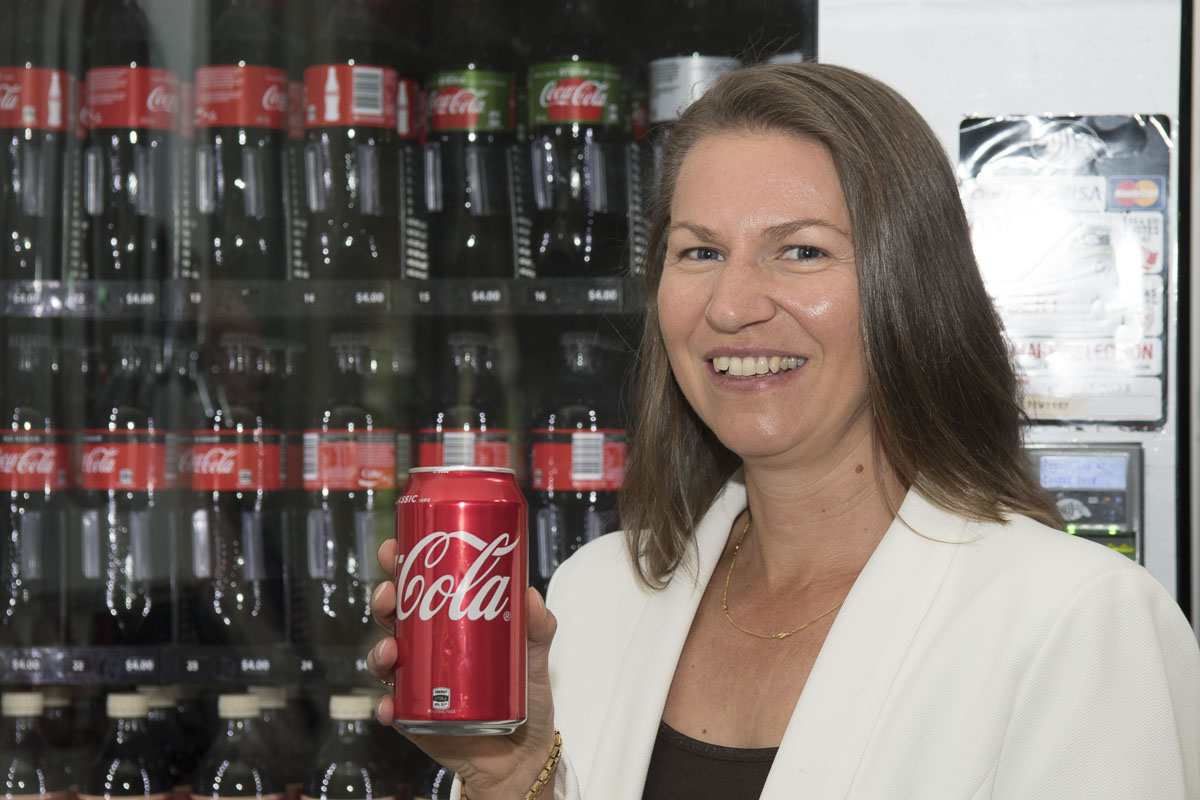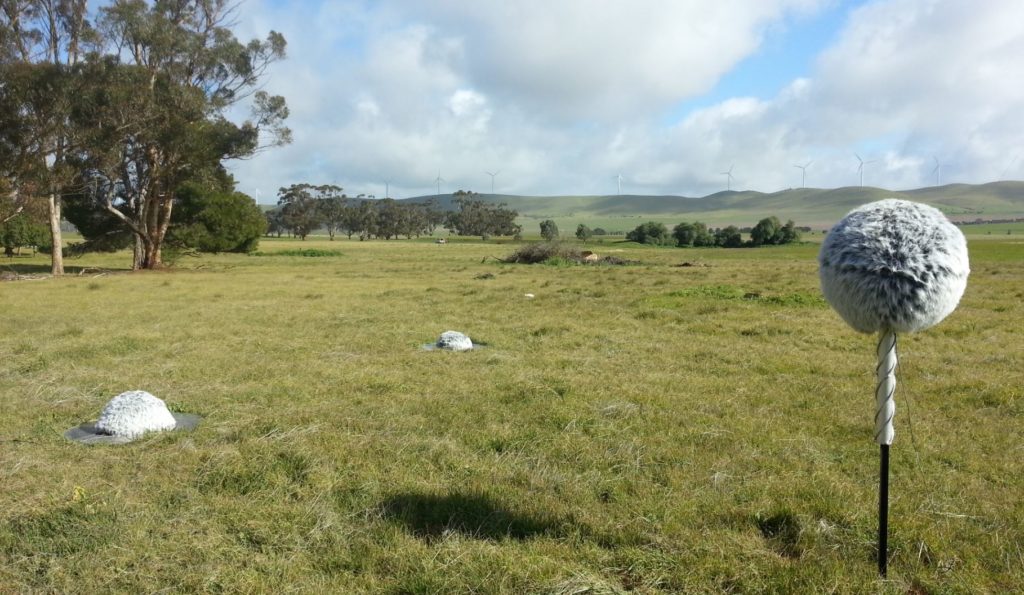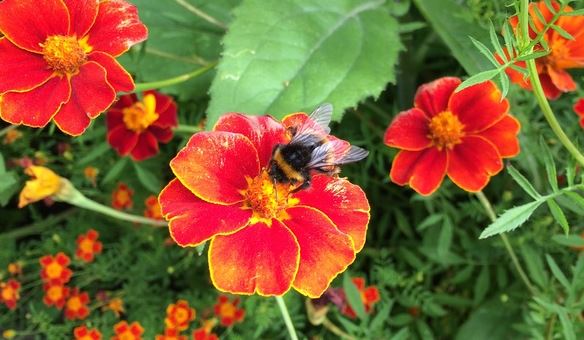
Obesity, tooth decay and risk of diabetes are among the pitfalls of excessive soft drink consumption which is plaguing communities around the world.
Research into managing the psychological impulse to drink Coca-Cola and other high-sugar drinks is one of the new Australian Research Council Discovery Projects starting at Flinders University in 2018.
Health problems relating to overconsumption of sugar are rising, with the World Health Organisation recommending the daily energy intake from sugar should at least drop from 10% to 5%. **
“But just one can of soft drink like this alone would roughly exceed that 5% quota set by the new WHO guidelines,” says Professor Eva Kemps, who works with Professor Marika Tiggemann on the research.
Other new ARC Discovery Projects are seeking solutions to better knee injury management, reducing levels of Aboriginal imprisonment, and finding new strategies to address institutional abuse in the Australian military.
“Our innovative researchers continue to address major current issues facing society, paving the way for a brighter future,” says Deputy Vice-Chancellor (Research) Professor Robert Saint.
“ARC projects support important work in new and emerging areas of research, such as complex information-based visual decision-making, nutrient uptake in cells and wind farm noise responses, along with landmark insights into Australian history and culture.”
The Australian Government announced $4.27 million in funding for 12 new ARC projects at Flinders University in today’s ARC funding round. They include:
- A $557,389 ARC Linkage Infrastructure, Equipment and Facilities (LIEF) grant, led by Flinders orthopaedic expert Dr Egon Perilli, will investigate the introduction of large-volume micro-CT scanning in Australia.
- Nine Discovery Projects including $420,077 for Professor in Psychology Eva Kemps’ investigation into new research methodologies to combat overconsumption of soft drinks and develop cost-effective technologies for reducing excessive sugar intake from soft drinks in line with the recently updated WHO guidelines.
- $378,756 to Criminology Law Professor Mark Halsey to investigate high Aboriginal incarceration rates, focusing on Indigenous prisoners in South Australia and the Northern Territory.
- A $368,636 Discovery grant for Dr Saulo Martelli to investigate the ‘Virtual Human Knee’ to study knee mechanics and develop solutions to prevent knee injury and assess reconstruction and implantation methods.
- A $416,584 investigation, led by palaeontologist Associate Professor Trevor Worthy, to document the extensive megafauna fossil site in inland Lake Callabonna to provide critical new insights into Australia’s palaeontology and natural history to enhance future conservation efforts.
- A $475,383 Discovery grant for Associate Professor Karin Nordström to expand her research into insects’ complex responses to visual cues in their environment and to apply these principles to improved human and automated systems.
- $128,152 for Associate Professor Ben Wadham to investigate the Australian Defence Force’s response and cultural change in dealing with abuse cases since 1969.
- Two Discovery Early Career Researcher Awards (DECRA) valued at $778,468 will respectively address the issue of wind farm noise (Dr Kristy Hansen) and investigate an undocumented history of Aboriginal domestic service in South Australia (Dr Natalie Harkin).

Collaborators in Dr Perilli’s LIEF project are Professor Mark Taylor, Professor John Long, Dr Youhong Tang and Associate Professor Karl Sammut, from the College of Science and Engineering at Flinders, with Professor Benjamin Cazzolato, Associate Professor Zonghan Xie, Emeritus Professor Roger Seymour, Dr Togay Ozbakkaloglu and Dr Sarbin Ranjitkar from The University of Adelaide, and Dr Mark Hutchinson from the South Australian Museum.
In the College of Humanities, Arts and Social Sciences, Associate Professor Matthew Fitzpatrick has a new Discovery project entitled ‘Monarchy, democracy and empire: German imperial policy before 1914’.
Dr Andrekos Varnava will collaborate with Flinders Emeritus Professor Eric Richards, Associate Professor Marinella Marmo and Dr Anatasia Dukova from Griffith University on research entitled ‘Managing migrants and border control in Britain and Australia, 1901-1981.’
Associate Professor Janni Petersen’s new $389,030 Discovery project, ‘Target Of Rapamycin control of nutrient uptake,’ involves work with Dr Sean Humphrey from Sydney University.
Dr Martelli’s project, ‘The virtual human knee,’ will include Associate Professor John Costi from Flinders and Dr Claudia Mazza from Sheffield University, Dr Kevin Shelburne from Denver University and Professor Lucian Solomon from Adelaide University.
Dr Lee Arnold (Adelaide Uni) and Professor Anusuya Chinsamy-Turan (University of Cape Town) will join Associate Professor Worthy’s new Outback program called ‘Extricating an extinction histories at Lake Callabonna’s megafuna necropolis’ while Associate Professor Nordström will work with Associate Professor Bruno van Swinderen from the University of Queensland on the Discovery project ‘Closing the loop between salience and brain activity.’

Associate Professor Wadham’s project, ‘Institutional abuse and organisational reform in the Australian defence force’ will involve Dr James Connor from University of NSW while Professor Halsey and Dr David Bright from the Flinders Centre for Crime Policy and Research will work on the ‘Reducing Aboriginal imprisonment: An offence-specific study.’
Meanwhile, four other new ARC projects led by academics from other universities will also involve Flinders University Associate Professor Stuart Brierley and Associate Professor Grigori Rychkov (visceral pain), Professor Michael Brunger (plasma-liquid interactions), Associate Professor Kris Natalier (children in divorce) and Dr Ian Moffat (mass spectrometry in archaeology).
** The WHO guideline recommends adults and children reduce their daily intake of free sugars to less than 10% of their total energy intake. A further reduction to below 5% or roughly 25 grams (6 teaspoons) per day would provide additional health benefits.
For more information about the funding awarded today please visit ARC Funding Announcements or the ARC website.

